Leaving home to study overseas can be exciting, but it also brings a tangle of fears — homesickness, unfamiliar languages, and the worry that you won’t make friends. If you’re an anxious traveler, these feelings can be overwhelming.
The good news is that a thoughtful plan and supportive programs can expand your comfort zone gradually. The following guide outlines practical steps for easing into study abroad and highlights flexible study‑abroad, internship, and volunteer programs that are designed to help you thrive.
Step 1 – Start with supportive study‑abroad providers
Some study‑abroad providers specialize in short, flexible programs with built‑in support—perfect for travelers who need reassurance. Maximo Nivel, one of the most reviewed providers in Latin America, offers university courses for academic credit on three-week, four-week, or two-week terms.
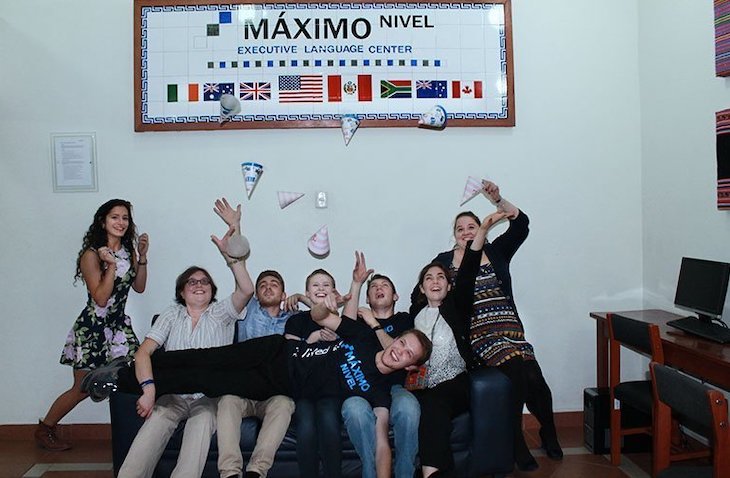
Their tuition is affordable, and they allow you to combine Spanish classes with internships or service learning. Packages include housing, meals, and airport transfers. Their friendly facilities offer 24/7 multilingual support and a 10-year payment guarantee. This means you’re never far from assistance if homesickness strikes.
International Volunteer HQ (IVHQ) is another strong option. Through IVHQ and its sister organization Intern Abroad HQ, students can design a personalized study‑abroad experience by choosing volunteer or internship placements and deciding how long they want to stay.
Their organized group programs last two to four weeks, blend service learning with cultural immersion, and award three US academic credits through a Global Citizenship course. Because accommodation, meals, airport transfers, and daily reflections are included, you don’t have to worry about logistics.
Short‑term programs can be a comfortable “trial run” before you commit to a semester abroad.
Step 2 – Choose programs that foster connection
If making friends is a priority, select programs that emphasize community. IVHQ’s group study‑abroad itinerary pairs you with peers who are also new to travel; participants volunteer together and share accommodation, so there’s a built‑in social network.

To further reduce anxiety, look for programs in locations with strong expatriate communities or widespread English use.
Step 3 – Add an internship to build skills and confidence
Once you’ve adjusted to being abroad, you may be ready for more independence. Internships provide structure and mentoring while letting you engage with local professionals.
Intern Abroad HQ offers a suite of fully hosted internships that are ideal for anxious travelers because they include accommodation, meals, and academic credit.
In Sydney, business administration interns work alongside Australian companies to learn project planning, logistics, and growth strategies, and they gain exposure to Australia’s vibrant finance and tourism sectors.
For creative majors, the Graphic & Web Design internship in Valencia tailors roles so you can build a real‑world portfolio; tasks range from website design and marketing to graphics for NGOs, and interns receive Spanish lessons to ease communication.
Marketing enthusiasts can head to Prague, where interns join marketing agencies or travel companies to learn social media, SEO, and event planning while enjoying one of Europe’s most picturesque capitals.

There are also technical internships. In Thessaloniki, engineering students assist research teams in labs and design projects. Dublin’s information‑technology internship places students in IT support companies and schools to help manage databases, troubleshoot systems, and learn from professionals; interns build problem‑solving and communication skills while earning academic credit.
For hospitality lovers, Rome’s tourism and hospitality internship introduces interns to one of the world’s top travel hubs, with tasks such as advising clients, creating marketing materials, managing bookings, and collaborating with travel agents. Italian language lessons are included, and beginners take a four‑week course before the internship starts.
If you’re interested in entrepreneurship, Intern Abroad HQ’s introduction to entrepreneurship program in Portrush, Northern Ireland, mixes coaching, workshops, day trips, and project delivery in a structured four‑week package. Participants explore Belfast, Derry, and Donegal, receive resume‑building workshops, and network with local business leaders.
For aspiring journalists, the journalism and publishing internship in Seoul provides hands‑on experience in South Korea’s media industry; interns attend meetings, conduct research, and develop digital content while navigating a new culture.
Those studying finance can intern in New York City, the heart of the financial world. Interns build resumes through case preparation, market research, organizing asset lists, and assisting with recruitment tasks. Placements may be in different parts of the city, but there is an orientation week that helps you master public transport and adjust to fast‑paced work.
Projects Abroad offers a wide menu of internship placements in Mongolia; most are in Ulaanbaatar, where modern life meets tradition. Standout options include the Social Work Internship (supporting local NGOs and community initiatives), the Psychology Internship (shadowing practitioners and assisting with mental-health outreach), and the Law Internship (contributing to case research and community legal education). You’ll have round-the-clock in-country support, and many placements offer vetted host-family stays for deeper cultural immersion.
![product-5b509763e1abf.[1090] projects abroad mongolia VolunteerForever](https://www.volunteerforever.com/wp-content/uploads/2025/01/product-5b509763e1abf.1090-projects-abroad-mongolia.jpeg)
GVI’s program in the Canary Islands lets you dive with dolphins while learning marine conservation skills. The volcanic archipelago off Africa’s west coast is home to whales, dolphins, and loggerhead sea turtles. From a research station in Tenerife, you’ll observe Atlantic spotted dolphins and bottlenose dolphins and may even see short‑finned pilot whales.
Why internships are a good next step
Internships are ideal for anxious travelers because they provide clear daily schedules and mentorship. You’ll develop professional skills, earn credit, and build a network without committing to a long semester.
Plus, fully hosted programs mean housing, meals, and orientation are handled, allowing you to focus on adapting to your new surroundings.
Step 4 – Volunteer for deeper cultural immersion and purpose
Volunteering abroad can help you overcome anxiety by shifting focus from your worries to meaningful work. Many volunteer programs operate in teams, so you’re rarely alone.
Europe
In Romania’s Miercurea Ciuc, volunteers join a sustainable agriculture program to learn traditional gardening techniques and support families without access to green spaces. Volunteers may also help with river clean‑ups or hay meadow mowing; in exchange, they enjoy exploring historic cities and learning about Romanian culture.
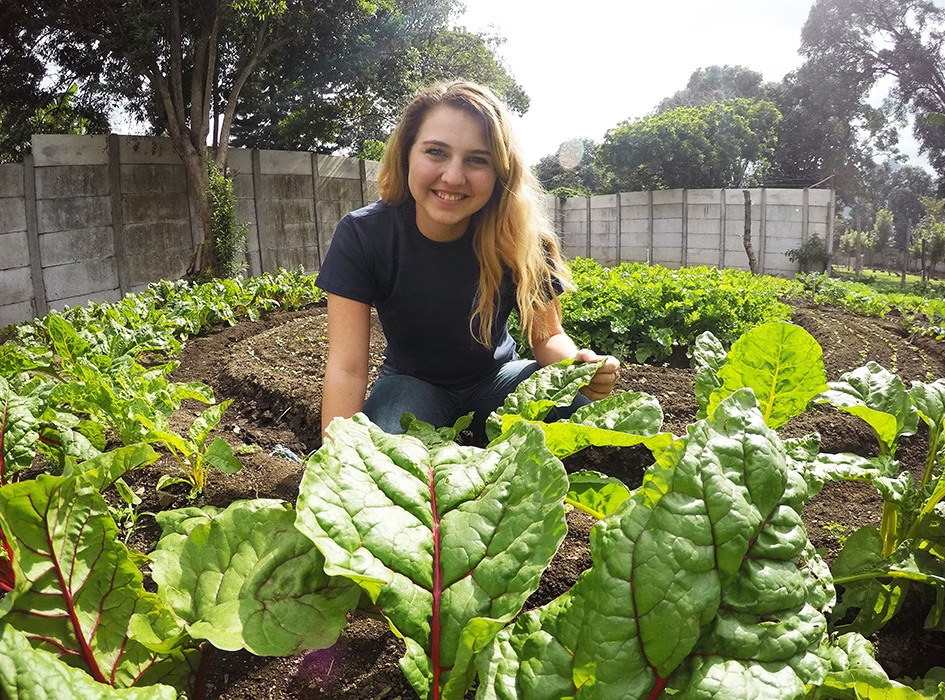
In Lisbon, IVHQ’s homeless‑support project partners with a local NGO to serve people experiencing social exclusion. Volunteers prepare, cook, and distribute meals, organize sports and recreational activities, maintain the center, and sort clothing donations.
In Barcelona’s marine conservation program, volunteers earn a scuba certification and then collect trash from the sea, log debris data, learn about marine ecosystems, and observe marine life. The program combines Spanish practice with exploring Spain’s Mediterranean coast — a great way to make friends who share a passion for the ocean.
The refugee support project in Athens gives volunteers the chance to work with refugees from Syria and other countries. Tasks include organizing sports and arts activities, teaching informal English classes, and running games that provide a safe space for refugees to socialize and learn new skills.
In Rome, a community‑support project focuses on building relationships and improving underserved neighborhoods. Volunteers participate in cleanup campaigns, prepare and deliver community events, and support crowdfunding initiatives.
Asia and the Pacific
For animal lovers, GoEco’s wildlife conservation and cultural immersion program in Japan offers a blend of conservation and heritage work. Activities are diverse: monitor crested ibises, help maintain terraced rice fields, assist with temple maintenance and social media, collect herbs, run bamboo workshops with schoolchildren, work on traditional farms, clean beaches, and restore abandoned houses.
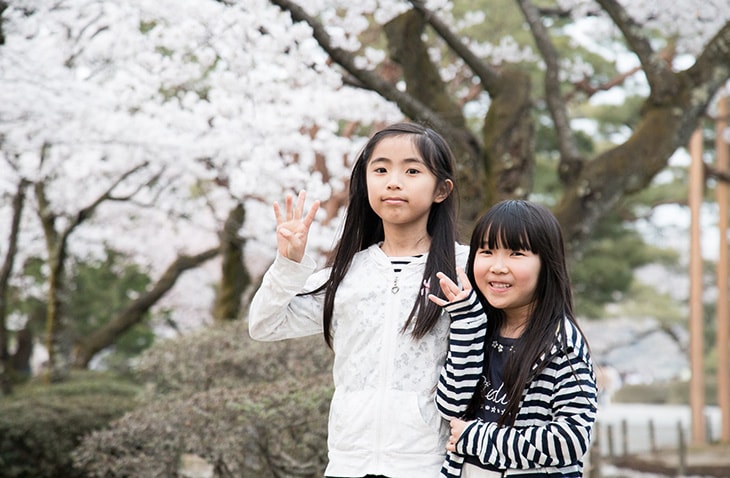
IVHQ’s ecological park rehabilitation project in Seoul helps restore green spaces along the Han River. Through hands‑on conservation work, you’ll gain practical skills while learning about South Korea’s environmental challenges.
For those who love the ocean, IVHQ’s Great Barrier Reef conservation program in Australia trains volunteers to monitor species and collect data on marine debris around the reef. Expect early mornings and full days of conservation work — but also the chance to see one of the world’s natural wonders up close.
GoEco’s wild animal rescue program in Australia places volunteers in a heritage‑listed wildlife sanctuary near Sydney. Volunteers split their time between animal care — preparing food, washing bedding, and providing enrichment — and habitat maintenance such as bush regeneration, maintaining fire breaks, harvesting fresh vegetation, and repairing enclosures.
Specialized humanitarian programs
Sometimes the best way to overcome anxiety is to focus on helping others. The Back to Home Project in Izmir, Turkey, run by Involvement Volunteers International, is a sustainable development initiative that empowers Syrian women. The project provides vocational training so women can rebuild their lives; daily routines include transporting women to the training center, guiding children’s learning activities, and celebrating monthly graduations.
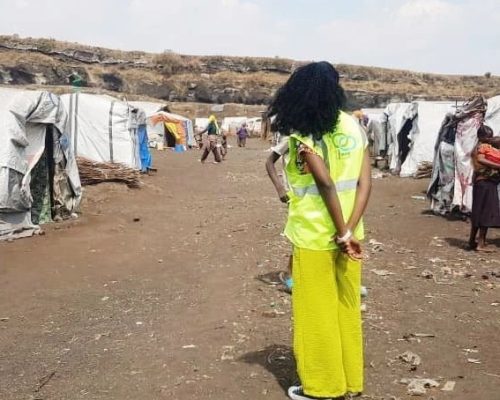
African Impact operates volunteer and internship projects in South Africa, one of the world’s top travel destinations. With 12 official languages and a strong sense of community, volunteers experience cultural immersion while contributing to projects that range from wildlife research and even photography.
Volunteering Solutions has programs in New Zealand and Ireland that combine environmental conservation with cultural immersion. In New Zealand, volunteers help plant and care for native trees, eradicate pests and weeds, protect threatened species, and make natural spaces accessible.
In Ireland, projects are community-based and scattered across counties such as Cork, Tipperary, and Kerry. Participants live with friendly host families, immerse themselves in Irish culture, and contribute to initiatives that strengthen local communities.
Practice self‑care while volunteering
Volunteering can be emotionally demanding. To manage anxiety, schedule personal time to decompress, keep a journal to process your experiences, and stay connected to support networks back home.
Remember that feeling nervous is natural; focusing on the impact you’re making can transform anxiety into purpose.
Step 5 – Embrace adventure and continued growth
Finally, stay curious. Studying abroad isn’t just about earning credit — it’s about discovering new perspectives. You’re learning to navigate unfamiliar environments. That resilience will serve you long after your trip ends.
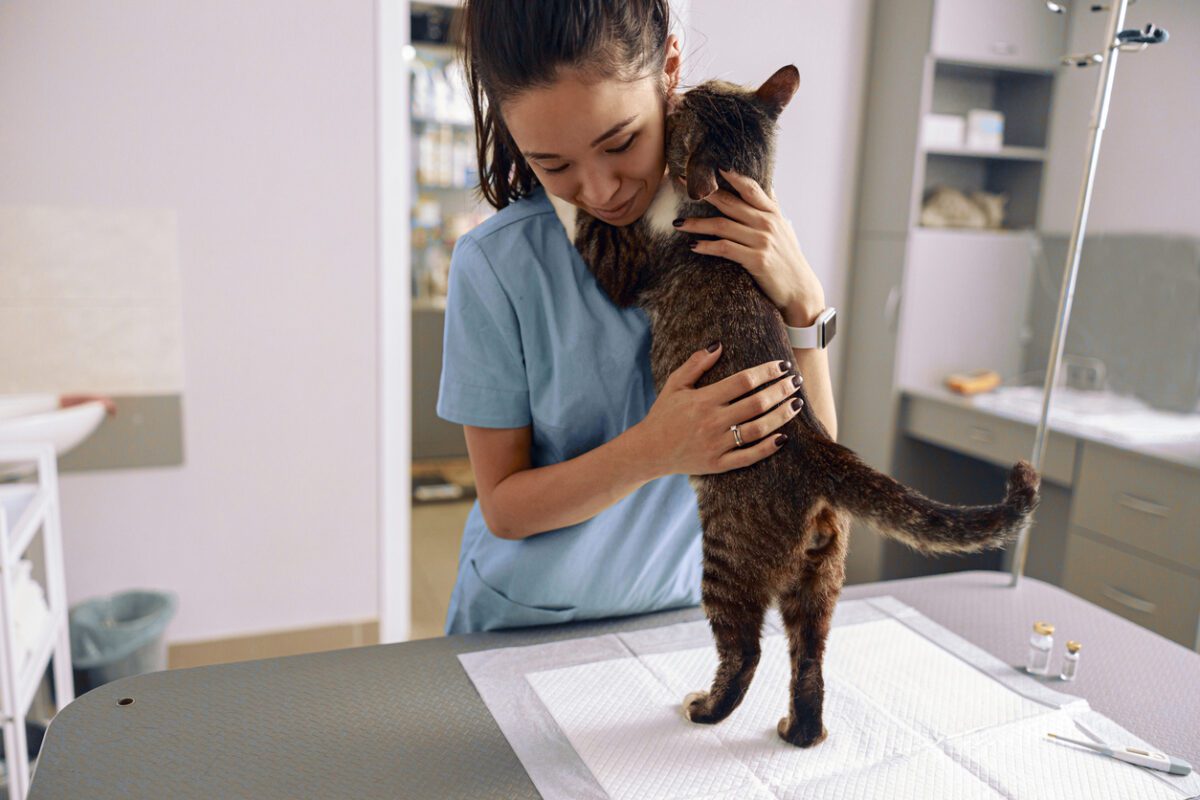
Ready to start?
Anxiety shouldn’t prevent you from pursuing the life‑changing experience of studying abroad. By choosing supportive providers, starting with structured programs, adding internships and volunteering, and practicing self‑care, you can gradually expand your comfort zone.
The programs highlighted above offer diverse opportunities, and they include the guidance and community you need to thrive. Take the first step today, and soon the world will feel like home.













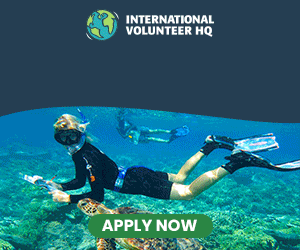






Munira Maricar · Travel Writer
With an international living background spanning Singapore, Qatar, Japan, and Mexico, Munira enjoys sharing insights on immersive travel while emphasizing the vital role of cultural respect and ethical engagement. Her extensive experience offers a unique perspective that inspires others to explore the world through service, ensuring that every journey respects and contributes positively to local traditions and communities.